*This article was written by Kymberly Chu and Chea-Mun Tan, Media Associates at Best Delegate
We compiled a list of interviews from students all over the world on their best and worst THIMUN committee scenarios based on their experiences, to examine how we can improve THIMUN procedure and MUN leadership.

“Planning is vital and job division among the group members is crucial to mantain the level of organization. The size of the leadership team is also important. If it’s too small, everyone is loaded with work. If it’s too large, everyone loses focus.”
- Efe Aydog, Uskudar American Academy
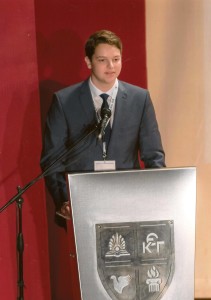
“It provides a standard template for all conferences and we can therefore ensure that the highest standards are met. It is also easier for students worldwide to participate in conferences without having to learn procedures from the beginning. Also, they should strive to achieve the highest standards in their training of student officers. They should ensure that correct manuals are available for delegates. Consultation on matters that are not clear should be made with thimun rather than left to chance or by taking unilateral decisions. Finally a well trained approval panel and organising committee will ensure the correct etiquette of resolutions and the smooth running of
a conference.” – John Panselinas, Costeas Geitonas

“To stay calm at all situations and to be considerate. I think maintain your composure since seriousness is important” – Alice Hu, Pacific American School
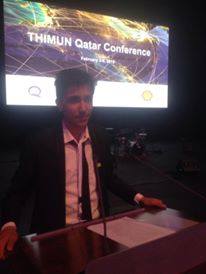
“ THIMUN procedure helped my students to think in a creative way and make solutions for their own communities, countries, and even the world’s problems! They are now able to do debate and to raise their voice against violence!”
- Rahmatullah Hamdard, HELA Afghanistan founder
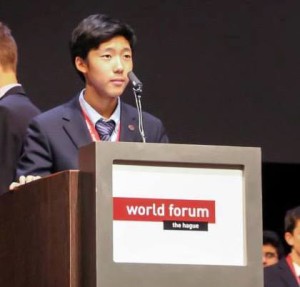
“An ideal committee “would be one where delegates aren’t intimidated by other delegates or the chairs. MUN isn’t about competing with other people, it’s about having an open channel of communication and discussion about important global issues.” Therefore, an “ideal committee starts with a welcoming environment, where delegates don’t belittle other delegates or are overly aggressive.” The worst THIMUN committee scenario is one in which “the chairs have failed to develop the personal environment that allows delegates to learn and develop.”
– Arthur Shin, University College of London
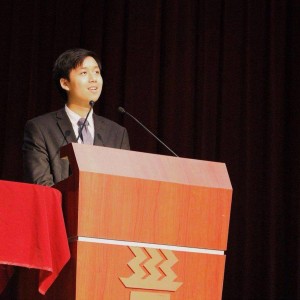
In an ideal THIMUN committee, “there needs to be controversial issues” as opposed to “issues that are cliched and practically non-solvable.” As for leadership, the worst THIMUN committee consist of “a chair [who] is nervous, ill-prepared or is found to plagiarize a research report, so much so that a late or substandard one is released.” The worst committees are ones that “delegates walk out of with feelings like they wasted their weekend.” An ideal committee would ensure that the “outcome produces a large group of delegates who feel empowered” and become “new global citizens who see issues beyond the narrow-mindedness of race, culture, socio-economic background, and religion.”
- Peak Sen Chua, George Washington University

“My worst committee experience is specifically in larger committees, especially plenary sessions where delegates are disruptive. In smaller THIMUN-affiliated conferences, like the Malaysian Model United Nations (MYMUN) conference, there is more of an established connection with one another.” This gives newer delegates “opportunities to give speeches” and voice their opinion. Defensor believes that an intimate committee setting allows conferences to “sprout good leaders because they are given the opportunity to shine in a smaller environment.”
– Marla Mae Defensor, Mont’ Kiara International School

“The best experience, and simultaneously the worst experience about a THIMUN committee is that there is always that one person who is very well versed in the debate, and who everybody else in the committee can stand behind. This is very impressive, as it shows how MUN can help a person like that flourish, however, at the same time, this is bad, as other delegates who are less versed in debate, may not be able to convince themselves on their own stances on issues, and will be sucked in by the political words of other flourished delegates.”
- Akhil Gupta, Mont’ Kiara International School
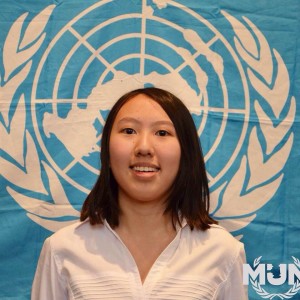
“ The THIMUN experience is optimal for every delegate. Its sense of international collaboration evokes intellectual curiosity. We can infer about almost each country’s foreign policy and apply our ideas as realistic solutions in our resolutions. We bury ourselves in the multitude of economic and social issues to address what’s wrong. Also, what matters the most: empowerment. By acknowledging delegates who talk and write and research, we salute their diplomacy. By letting the actual MUNers lead through chairing or running the club, MUN serves as the catalyst for ambition and social change.”
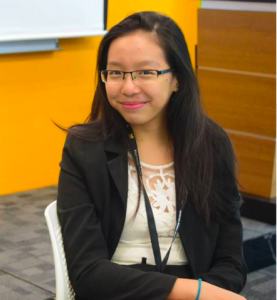
“Throughout my experience, I believe that the ideal THIMUN committees are ones in which all delegates feel like they have an equal opportunity to freely speak about what they believe. Diplomacy, passion, and collaboration are three of the most important aspects in ensuring a memorable THIMUN experience in any committee. The worst committee experience would probably be when there is a lack
of interest or preparation on behalf of members involved. The purpose of an MUN conference has been achieved when delegates walk out on the last day with a greater understanding of world issues and what it means to be an active global citizen.”

